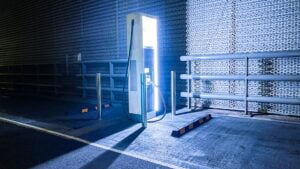The buzz surrounding electric vehicles (EVs) is fading, signaling a shift in the automotive industry’s approach to EVs. Despite initial optimism and high sales forecasts, automakers like Ford, General Motors, Mercedes-Benz, Volkswagen, Jaguar Land Rover, and Aston Martin are scaling back their EV plans. Even Tesla, the U.S. EV leader, is preparing for slower growth than anticipated.
This change reflects a return to a more diversified vehicle lineup that includes gas-powered vehicles, hybrids, and fully electric options. Companies like Ford and GM are increasing production of hybrid models to cater to consumers who may not be ready for fully electric vehicles. This approach also helps meet stricter emissions standards.
While EV adoption has been slower than expected, sales are still projected to increase in the coming years. Factors like rising interest rates, material costs, and infrastructure challenges have contributed to the slower pace of adoption. As a result, automakers are adjusting their strategies to navigate the evolving landscape of the EV market.
Looking ahead, the industry may witness further shifts in strategy based on political pressures, regulatory changes, and consumer preferences. The outcome of the U.S. presidential election, fuel economy standards, and evolving EV regulations in Europe will also impact the future of EV adoption and production.
Overall, the automotive industry is adapting to the changing dynamics of the EV market, aiming to strike a balance between traditional and electric vehicles to meet consumer needs and regulatory requirements. Stay tuned for more updates on the evolving EV landscape.
Source link


